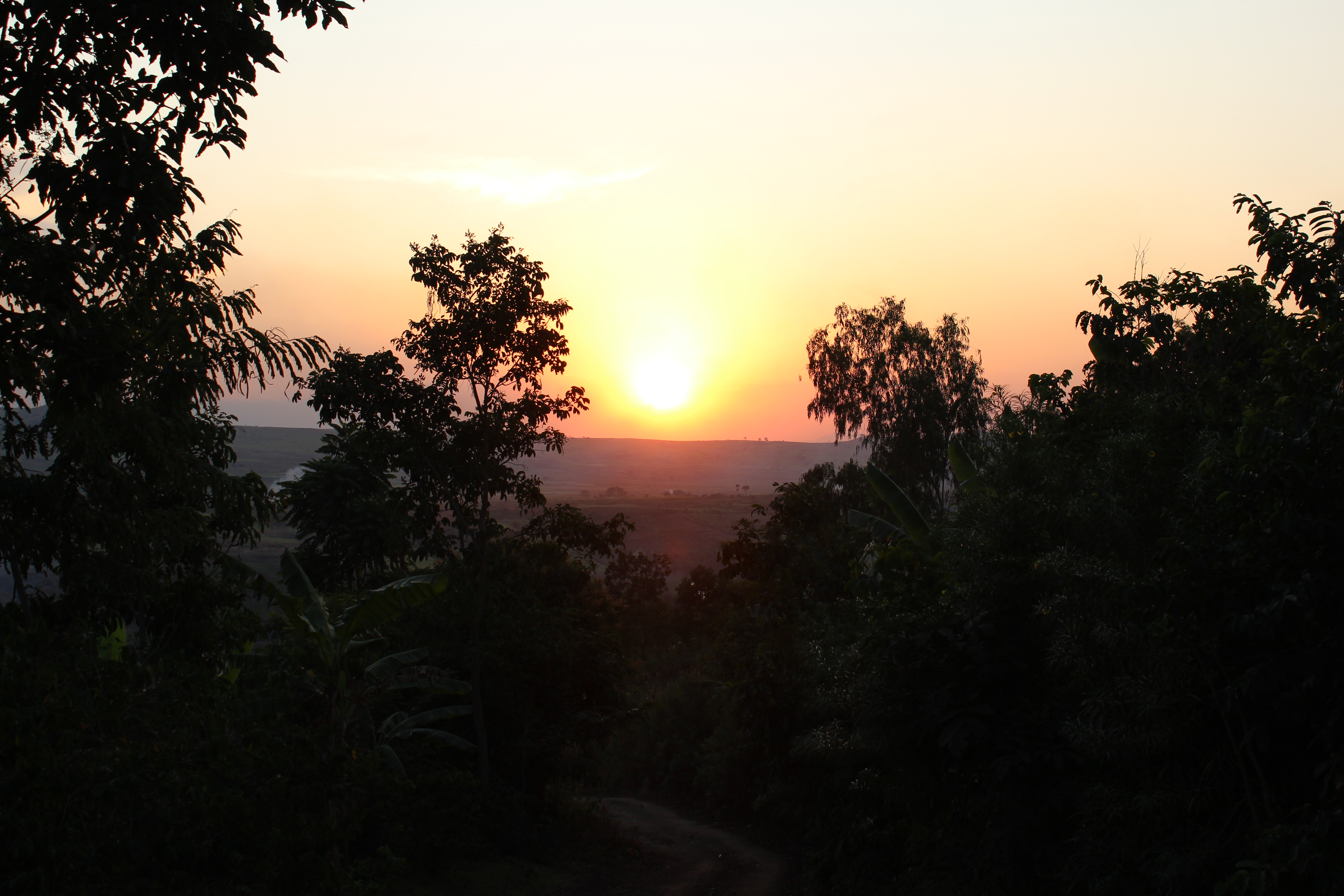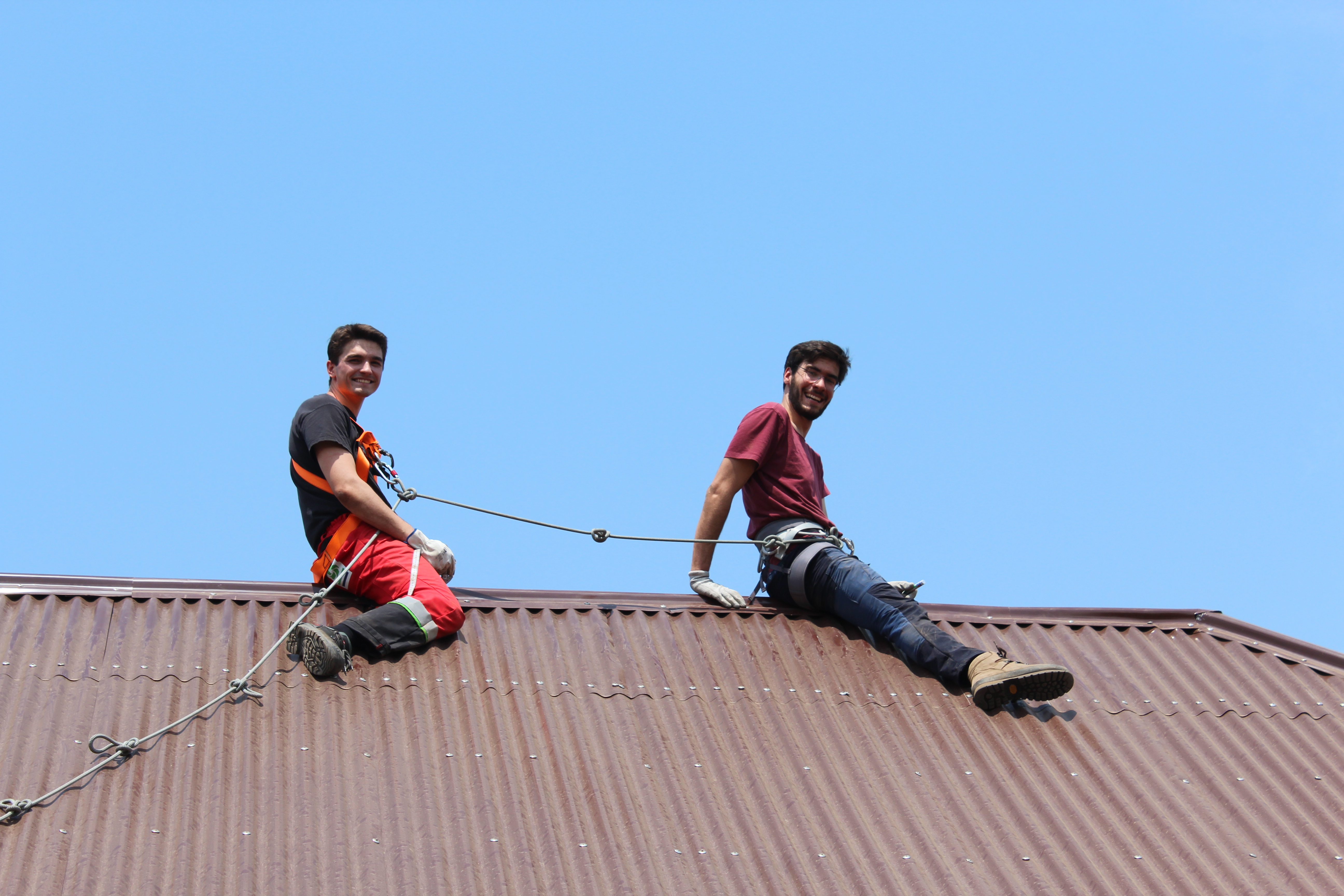
Welcome at the school
After the hassle in Kampala, everybody was ready to get their hands dirty. An escort of bodaboda’s[1] led us to the school, with deafening, constant honking to announce our arrival to the entire village. This resulted in even more people staring and shouting ‘Muzungu!’ at us than we had already gotten used to by now.[2] All of the school children (between about three and 13 years of age) and teachers awaited us at the school gate, and welcomed us with the school anthem among other songs. The welcome was a magical moment, that I doubt any of us will ever forget.
[1] Bodaboda comes from ‘border to border transport’, which sounds like bodaboda to people who didn’t know English very well. Bodaboda’s are small Chinese motorcycles used for transport of people (as taxi’s) and materials.
[2] Muzungu traditionally means ‘Brittish person’, but is used to describe all white people. It is not really an insult and seems to have more of a neutral connotation. The best way we have found to deal with the permanent exclamations is simply to shout back ‘Muzunguuu!‘.


To work!
Finally we could get to work! Unsurprisingly, the first couple of days started slow. We first had to get to know the local technicians and figure out how the plans that we had worked on during the entire year could be mapped to reality. However, the pace picked up when we got more used to the location and the people and their way of tackling problems. Pieter and Yaro put up the solar panels together with Johnny.

Chris and Johnny
During the first week, we have come to deeply respect the local technicians that we worked with. Chris and Johnny are both real workhorses. They tend to do before allowing much time to think, but this tends to balance out with our tendency to overthink. Thanks to them, and the bodaboda drivers who quickly brought us to the shops in Bwera, everything has been evolving very quickly!


Becoming somewhat less Muzungu
Of course, we also take some time to explore and enjoy the local culture. During the week, we went to the local market to get some African fabrics. Each of us chose a different, colourful fabric to be transformed into typical local cloths. Jennifer, a teacher of the Van Merode College (another of Father Tom’s initiatives together with Ekisande Belgium), measured us and sewed our clothes. The end results are the beautiful garments you can see in the pictures.
Weekend relaxation
During the weekend, we were invited by Father Tom to again have dinner at his home. In the afternoon, the girls living in the neighbourhood caught some homegrown catfish from the pond behind the house. The fish that were caught and prepared before our eyes, were served to us only a few hours later. At that time, we also washed a mountain of clothes.

The next day, we once again attended a local mass, this time at a newly founded church in the neighbourhood of Bwera. The family that funded the church invited us for lunch, an gifted us some delicious sugar cane for later.


Sunday is God’s day
We followed the sunday mass at the Kisebere church, and experienced an African, orthodox mass for the first time. It was a happy celebration with a lot of singing and dancing. The Bishop also used this occasion to introduce us to the community. We even received African names! These names are based on whether the child is a boy or a girl, and the position of the child in the sequence of siblings. And thus, Mumbere Yaro, Kapumbere Pieter, Baluku Ryan and Masika Eveline were born.
Nature can be ruthless
After lunch, we attended the funeral of a girl that went to the school that we work at. The reason of her death is unknown to us, but death due to improper treatment of Malaria or Typhoid is not uncommon here. Funerals here are big events where most of the village gets together to pray and pay their respect to the deceased and their family and friends. The event is incredibly mournful, with a lot of crying and statements by priests, acquaintances and local leaders. Especially emotional was the visit of the girl’s former classmates. After the burial of the deceased, the attendees of the funeral receive a plate of food to finalize the funeral.
Stay tuned!
The next blog will detail our second week of work.














Mua’chire!
Mumbere Yaro, Kapumbere Pieter, Baluku Ryan en Masika Eveline,
Zo fijn om deze onvergetelijke ervaringen vanop de zijlijn mee te mogen beleven.
Trots ook op jullie om de zomervakantie aan dit waardevol vrijwilligerswerk te besteden.
En… dat jullie attent zijn om een ‘local touch’ te maken met taal, eet- en drankcultuur, transport enz… aan te passen, belangrijk voor een duurzame relatie.
Doe zo verder, fanmail van Sandra (mama Yaro)
Super fijn om te lezen Sandra, we doen ons best! Bedankt 🙂